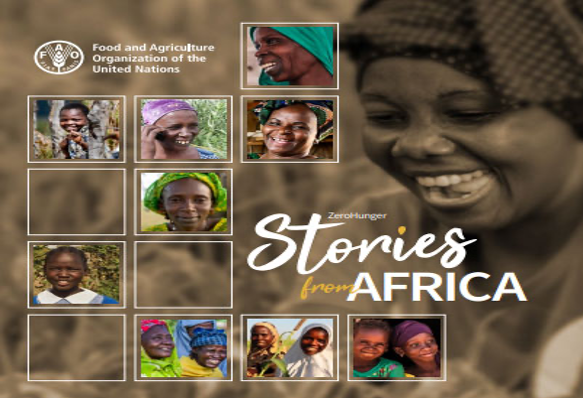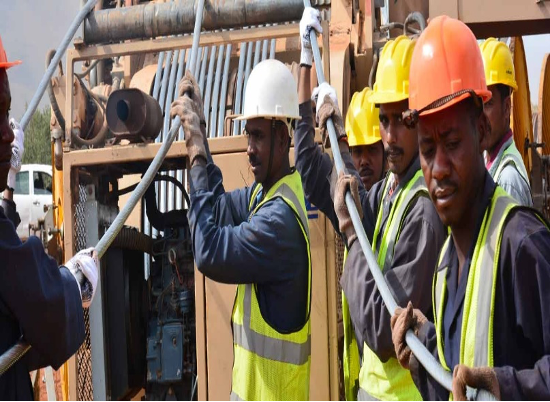For too long, Sub-Saharan Africa has been treated as a single entity that is mired in failure. Yet we fail to ask ourselves, what changes have occurred among nations since the mid-1990s?
African countries differ significantly in their history, economic potential, geography, culture, and political systems. One of the clearest patterns since the mid-1990s has been economic and political divergence.
 However, there are other African countries that have achieved dramatic improvements in economic growth, poverty reduction and political accountability. Countries like Ghana, Botswana, Ethiopia, Lesotho, Mozambique, Rwanda, Mali, South Africa, Kenya, Cape Verde, and Mauritius among others have tried their best to sustain and maintain balanced economies.
However, there are other African countries that have achieved dramatic improvements in economic growth, poverty reduction and political accountability. Countries like Ghana, Botswana, Ethiopia, Lesotho, Mozambique, Rwanda, Mali, South Africa, Kenya, Cape Verde, and Mauritius among others have tried their best to sustain and maintain balanced economies.
Today prosperity in Africa is at its highest ever level, with 43 countries out of the 49 in the region witnessing improvements in their prosperity ranking over the past decade, for a variety of different reasons. Such successes should serve as more than a source of encouragement. They potentially offer other African countries examples of best practices in overcoming what are often common challenges, from improving levels of government accountability to improving the environment for business creation and investment.
This article highlights some improvements made by four African nations over the past decade, with examples that offer an opportunity to create a pathway to prosperity for other countries who are in similar stages of their own national development.
SENEGAL
There have been many improvements in Senegal, in the past decade. There has been government effectiveness with integrity which has seen a significant rise for the country. Also, a stronger economy with lower inflation levels has resulted in rising in the rank of the economic quality pillar.
 In addition, the people who depend on fishing in Senegal’s communities have also begun to address the longstanding challenge posed by overfishing marking an improvement in the country’s Natural Environment ranking by rising 15 places. Localized fisheries management schemes such as that in operation in Ngaparou have created a series of protected areas. Where fish stocks are encouraged to regenerate. The success of such schemes has resulted in higher incomes for the region’s fishermen that are now replicated in nearby Liberia and Sierra Leone.
In addition, the people who depend on fishing in Senegal’s communities have also begun to address the longstanding challenge posed by overfishing marking an improvement in the country’s Natural Environment ranking by rising 15 places. Localized fisheries management schemes such as that in operation in Ngaparou have created a series of protected areas. Where fish stocks are encouraged to regenerate. The success of such schemes has resulted in higher incomes for the region’s fishermen that are now replicated in nearby Liberia and Sierra Leone.
Although access to secondary education has improved, education remains particularly weak in the country with enrolment and completion rates being some of the lowest in the world.
GUINEA
Collectively, the improvements made in Guinea since a decade ago have resulted in a 14- rank rise in prosperity for the country. Guinea has made determined progress in opening its economy over the course of the past decade, increasing its domain ranking by some thirty-one aces. This success has been driven by a string of major reforms aimed at improving the business environment, including increasing access to credit, streamlining the process of business creation, and strengthening property rights.
The country has also made impressive improvements in the governance pillar, due to government effectiveness strengthening and greater political accountability. The challenge for the country moving forward now is to build on these economic and institutional reforms and improve the lived experience of its citizens.
BURKINA FASO
Governance has seen a considerable improvement in Burkina Faso, rising 12 ranks as a result, due in particular to political accountability and executive constraints improving. There has also been a concomitant improvement in institutional trust. Burkina Faso has also improved its living conditions as it started to address the challenge posed by its low water quality through a concerted partnership with a series of multinational organizations and NGOs.
 The population’s reported satisfaction with the country’s water quality has improved with cases of waterborne diseases such as guinea worm declining sharply from close to 12,000 to just thirty in the past thirteen years.
The population’s reported satisfaction with the country’s water quality has improved with cases of waterborne diseases such as guinea worm declining sharply from close to 12,000 to just thirty in the past thirteen years.
Despite the recent coup, giving protection to investors and strengthening contract enforcement together with removing vested interest, will help create a more open economy.
BENIN
Another African country that has experienced an impressive improvement in the open economy domain is Benin. In large part, this has been due to the easier to start a business than it was a decade ago. A reduction in the number of time businesses spends complying with regulations and labour markets becoming more flexible over the course of the past three decades.
Almost forty state-owned enterprises have been privatized, whilst the industrial Free Zone (ZFI) regime has provided fledging businesses with a series of exemptions to both import and export duties.
These economic reforms are to be lauded but Benin needs to strengthen its institutions and social contract if it wants to improve the lived experiences of its growing population.
This progress may be fragile as slipping back into stagnation or worse remains a possibility. As emerging countries become integrated into the global economy, they must handle volatility beyond their control. Some face the risk of internal political instability and many must continue to address the issues of reproductive health, and education among others.
The future of these countries is uncertain but promising for the future.


